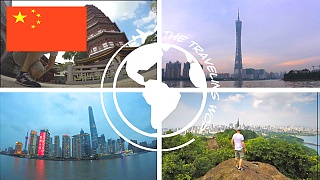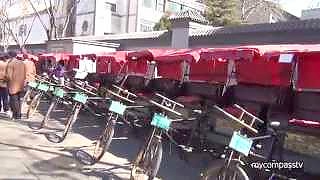 A month in China : Modern City Life : tour suggestion from BeiJingBuzzz
A month in China : Modern City Life : tour suggestion from BeiJingBuzzz
Modern City Life Tour of China
Week 1-2: Shanghai and Surroundings
- Explore the modern skyline of Shanghai, including the Bund, Oriental Pearl Tower, and Shanghai Tower.
- Visit modern art galleries like the Power Station of Art and M50 Creative Park.
- Experience Shanghai's vibrant nightlife and dining scene.
- Day trip to Suzhou to explore its classical gardens and water towns.
- Visit Hangzhou to see the West Lake and experience tea culture.
Week 3: Beijing
- Explore Beijing's modern architecture, such as the CCTV Headquarters and National Stadium (Bird's Nest).
- Visit contemporary art districts like 798 Art Zone.
- Explore modern shopping streets like Wangfujing and Sanlitun.
- Experience Beijing's nightlife and entertainment scene.
Week 4: Hong Kong and Macau
- Experience the bustling streets of Hong Kong and enjoy its modern attractions like Victoria Harbour and Hong Kong Disneyland.
- Explore the modern skyscrapers and entertainment complexes of Macau, including casinos and luxury resorts.
- Relax on the beaches of Lantau Island or explore the hiking trails of the New Territories.
Related Videos
Featured Videos

|
A BeiJingBuzzz special. From Xi'An to Kashgar.
A journey along the Chinese part of the trade route that connected China to Iran, Syria, Palestine, and beyond.
With film-maker Graeme Langford ...
|

|
Hong Kong has quite a few beaches and some of these are very nice ...
|

|
A talk by Australian Kevin Rudd ...
|

|
500 performers dancing in the sky ...
The poster thumbnail is blurred but the video is clear : )
|

|
The Tao Te Ching in older PinYin.
The 'Book Of The Way', by LaoZi (Lao Tsu / Lao Tse) is the essence of Daoism (Taoism).
An audio book with introduction; don't miss it ...
Bonus film - The Taoist Way - a talk by Alan Watts ...
|

|
In SiChuan province
|

|
The beautiful handover section of the 2018 Winter Olympics in Korea ...
New working video (10th March).
|
Tag search ?
 A month in China : Modern City Life : tour suggestion from BeiJingBuzzz
A month in China : Modern City Life : tour suggestion from BeiJingBuzzz












